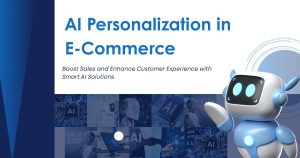How Data Reporting Can Transform Your Business

The data runs decision -making in more companies than ever before. Still, it’s not just about collecting large amounts of data. It is also about converting the information to action -rich insights that provide growth, efficiency and innovation. This is where computer reporting plays an important role.
If you are wondering what data reporting for your business can do, you are in the right place. Towards the end of this blog you will understand that computer reporting only provides more than the number. You will see how it strengthens smart decisions, postpone opportunities and give your business a competitive advantage in a computer -rich world.
What Is Data Reporting?
Let’s define data reporting before we find out the benefits. Data reporting includes collection, organization and presentation of data in structured formats such as dashboards, charts or tables. The goal is to present complex information in a way that is easy to interpret and work.
This is different from data analysis, which usually examines “why” trends, while data reporting often gives “what” answers, now or at a particular time. Together, they take the spine in informed business decisions.
Why Data Reporting Matters for Businesses
Data reporting isn’t just a technical process. It’s a strategic tool that has the potential to revolutionize operations and decision-making within companies of all sizes. Below are some key benefits it brings to the table.
1. Improves Decision-Making
One of the biggest advantages of data reporting is its ability to improve decision-making. With accurate and timely data reports, businesses can make informed choices rather than relying on guesswork.
For example, e-commerce retailers often use automated dashboards that report daily product performance. If a specific item is underperforming, the team can immediately adjust pricing or marketing strategies.
According to a McKinsey report, companies that base decisions on data are 23 times more likely to acquire customers and 19 times more likely to become profitable.
2. Boosts Operational Efficiency
Data reporting helps identify disabilities that lose time, resources and wealth. By offering a clear snapshot of operation, the business can find obstacles and address them quickly.
Take supply chain management as an example. With extensive reporting, the deadline for business orders, inventory sales and delivery can trace delay. It enables rapid solutions while saving costs.
Amazon, a well -known leader in operational efficiency, depends a lot on the real -time report to adapt logistics and reduce the delivery window.
3. Enhances Employee Productivity
Studies show that employees spend an average of 8 hours per week searching for the right data instead of analyzing or acting on it. Centralized data reporting eliminates this inefficiency, giving teams access to the critical insights they need within minutes.
By automating reports and reducing manual work, employees can spend more time on tasks that add value, such as strategy planning or customer engagement. The result? Streamlined workflows and more productive teams overall.
4. Improves Customer Experiences
Customers’ satisfaction is often associated with how good corporate customers understand preferences and behavior. Data reporting tools gather and show the customer’s trend, including buying history, response and commitment patterns.
For example, Netflix collects huge amounts of user data for what customers see and use it to recommend the new show. This individual customer experience has made Netflix a global favorite.
Regardless of each business, form, the main customer can follow suit using reporting to monitor matrix and increase the experiences.
.
5. Facilitates Goal Tracking
With clear reporting tools, meeting business goals becomes measurable and manageable. Reports allow businesses to set data analytics goals and then track their progress in real time.
For example, consider a sales team with a monthly revenue target. Weekly reports help them see how close they are to achieving it and adjust efforts if they’re falling behind.
By consistently tracking performance metrics, organizations stay on course to accomplish both short-term milestones and long-term objectives.
6. Provides a Competitive Edge
Data reporting is no longer a luxury. This is necessary to stay forward in competing industries. Companies that effectively use reporting are better equipped to detect market trends and swing quickly.
For example, a drug dealer can see in its report that a specific jeans style are trends in areas. Shopping on that trend faster than participants gives them the first power of the first power.
The more conscious opportunities and risks your team is, the more competitive it will be.
7. Simplifies Compliance and Risk Management
For industries that are strongly regulated, such as finance or health care, compliance is important. Data reporting ensures that large business operations remain transparent and in line with rules.
Compliance performs data reporting easily to understand formats, and ensures that the audit is stress -free and effective. In addition, it reduces punishment by helping companies avoid iconic risks.
8. Enables Customization and Personalization
Data reporting platforms can be sewn to show relevant insights for different business functions. Whether it is reporting for marketing, finance or HR, adaptable dashboards ensures that each department gets what they need.
For example, marketing teams can draw the engagement rate from social media outlets, while human resource departments track the trends of employee satisfaction or turnover. With this insight for specific goals, each team works in the business smarter.
How to Maximize the Benefits of Data Reporting
Now that you know what data reporting can do, here are some steps to ensure you’re leveraging it to its full potential.
Invest in the Right Tools
Choose reporting tools like Tableau, Power BI, or Google Data Studio. These platforms offer advanced visualization capabilities while integrating smoothly with existing systems.
Train Your Team
A powerful reporting tool is useless if your team doesn’t understand how to use it. Provide hands-on training to ensure employees can extract valuable insights from reports efficiently.
Automate Where Possible
Manual reporting takes time and risks errors. Automate your processes to receive real-time updates without unnecessary delays.
Focus on Actionable Insights
Reports should be actionable rather than just informational. Be specific about what steps stakeholders need to take after reviewing them.
Revisit and Adapt
Data needs change as businesses evolve. Periodically review your reporting framework to make sure it aligns with current priorities.
Elevate Your Business With Smarter Reporting
Effective data reporting is not just a tool; This is a strategy that gives companies the right to flourish in a competitive scenario. From improving operating efficiency to increasing customer experiences, the benefits are invaluable.
If you are ready to take the next steps to use the computer power, you can start searching for equipment in accordance with your business goals. Begin with a platform that supports adaptation, automation and integration with your current system.
Data is only useful when they are actionable – and with proper reporting, your business will always be a step ahead.





